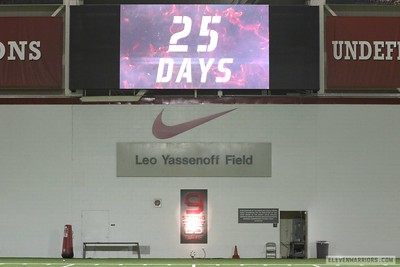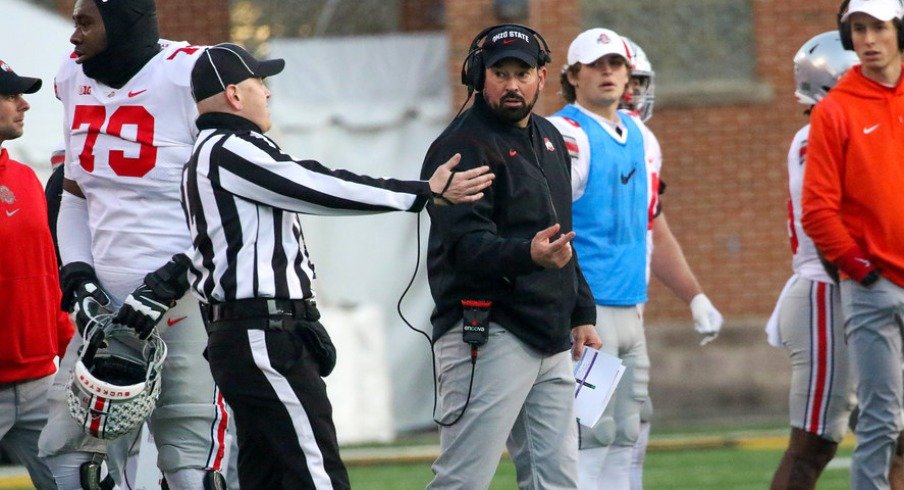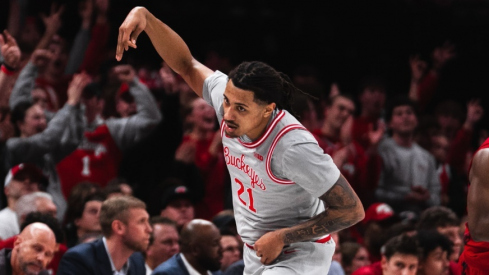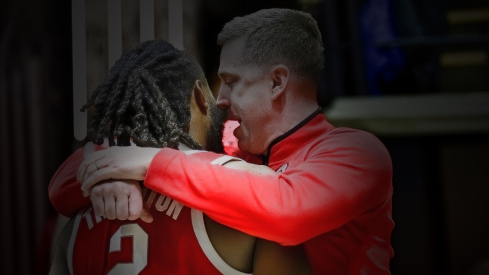Football is statistically an excruciating sport to watch.
Baseball! I mean baseball. Not football. Football is an action-packed bacchanalia of high octane excitement, and far be it for me to compare America's Favorite Game with America's Pastime, which is played mostly by dour, heavy-breathing junior varsity accountants.
One sport has numerous built in commercial breaks, lengthy dead spots of actual playing time, players intentionally pausing the game to do whatever goofy ritual they feel compelled to complete before performing a simple action, and time outs for a thousand random things that feel like they should seem much more significant to the outcome of the game than they actually are.
The other sport is baseball, which has those things too, but lazier.
One of the things that I've long held is that if you didn't grow up watching either sport (both of which I love dearly), there is very little likelihood that the on-field action alone is going to make a true neophyte a believer. I'm sure it happens; someone gets a copy of the Ohio State/Utah Rose Bowl, thinks that every game is like that, and proceeds to angrily watch Big Ten football for the next several decades. We love them because they're an essential part of our cultural fabric, but in a vacuum both baseball and football are difficult sports to actually consume as pieces of media.
In college football, this almost feels like a sin, because the collegiate version of footed ball is supposed to be the fun one, the Kramer who busts in Jerry's apartment and yells something about mangoes before dating a nudist or whatever. The last thing college football should ever be is boring, and some have been concerned that the current clock rules are dragging the sport in that direction.
That's okay. The powers-that-be in college football have a solution.
Well, several solutions (per Ross Dellenger at SI.com):
The non-controversial proposals include (1) prohibiting consecutive timeouts (ie, icing kickers) and (2) no longer extending a first or third quarter for an untimed down if the quarter ends on a defensive penalty (the down would be clocked starting the next quarter).
...
In a third proposal that is garnering wide support, the clock will continue to run after an offense gains a first down except inside of two minutes in a half. In a more controversial fourth proposal, the clock will continue to run after an incomplete pass once the ball is spotted for play.
These are big changes, and any one of them (to say nothing of all of them) would have significant impacts on strategy and performance. I don't really have much of an opinion about that, mostly because I'm too dumb to understand the logistical implications on modern offenses and defenses. What I do have an opinion on is whether any of this actually means anything.
Dellenger's article points out that NFL games currently average about three hours and ten minutes long. College football averages about eleven minutes longer than that, and this is where my skepticism about the proposed rule changes kick in (and my unearned confidence in my back-of-the-napkin math really starts to shine).

Dellenger also notes that the NFL averages about 25 fewer plays than college football per game, which, assuming around seven seconds per play, is about three minutes of gametime. Additionally, NFL halftimes are eight minutes shorter than college football halftimes, which means yep: making college football more aligned with the NFL in terms of how the clock is run will probably shorten games, on average, to something like what we see on Sundays.
The fourth proposal might start addressing concerns officials might have about "pace of play", but the truth is that absent a running clock, neither the college or NFL version of football is ever going to have the kind of momentum that basketball or hockey has in terms of actual playing time (and if you're worried about commercials, bad news: pretty much only soccer can lower the percentage of ads you're going to have to sit through as a proportion of your viewing time).
The difference between three hours and ten minutes and three hours and twenty minutes might technically be quantifiable, but for someone watching Illinois stomp on a MAC team in the late third quarter, time has lost all meaning at that point and you're stuck in some kind of liminal plane of existence until Bret Bielema decides to release you.
Instead of just nibbling at the edges of how long these games go, the officials of college football should just focus on changes to make what is played more exciting instead of worrying about how to increase what isn't played. They might worry about turning the game into something more, shall we say... Canadian, but the core of the product you're watching right now isn't going to change significantly just because the game is sped up slightly.
Are the rule changes a positive step in making college football flow better than it has previously? Maybe, and I'm all for anything that gets rid of the interminable bullshit head coaches wallow in to try and eke out a few extra plays in a quarter. But beyond that, college football should be trying to make itself more distinct from the NFL, not less.
That's the true strength of college football. It's a little weirder, it's a little difference, and it's a little more fun than the professional game. These games are going to run three hours no matter what, and so they might as well be entertaining as hell.


